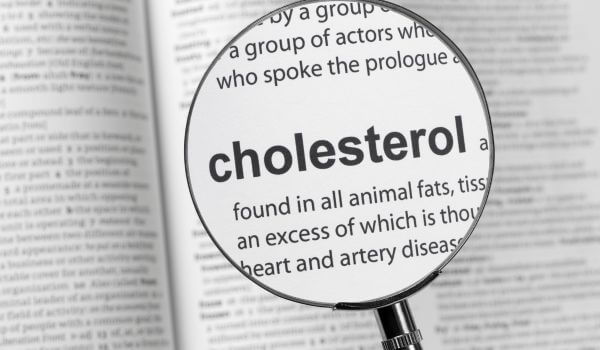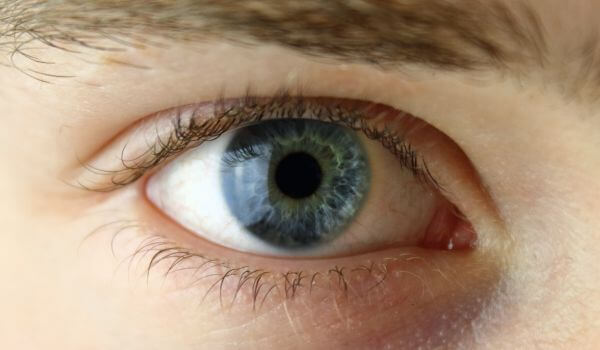 For the last couple of years, I haven’t really been ‘feeling it. ‘ A recent trip to the gynecologist and some bloodwork later, I have the news that I am probably entering perimenopause. While the knowledge that this stage of life was always on the cards at some point, a part of me seems to think this must mean everything slows down and my sex life is supposed to dry up (both literally and figuratively!), which comes with mixed emotions. Menopause and intimacy don’t seem like terms that work together all that well.
For the last couple of years, I haven’t really been ‘feeling it. ‘ A recent trip to the gynecologist and some bloodwork later, I have the news that I am probably entering perimenopause. While the knowledge that this stage of life was always on the cards at some point, a part of me seems to think this must mean everything slows down and my sex life is supposed to dry up (both literally and figuratively!), which comes with mixed emotions. Menopause and intimacy don’t seem like terms that work together all that well.
Or do they? A fulfilling sex life can be essential for our well-being, impacting our overall happiness and satisfaction. As women live longer due to advancements in healthcare, they spend a significant portion of their years as post-menopausal beings, and a lot of us still desire sexually intimate relationships even if society deems it weird.
But while the spirit may be willing, sometimes the flesh is weak. The hormonal changes during and after menopause can affect a woman’s sexual function. Lower estrogen levels can lead to vaginal dryness and pain during intercourse, along with decreased libido. Couple that with the fact that American culture often focuses on youth, overlooking the potential for women to feel liberated and fulfilled during this phase. Women might find themselves at odds with societal views that they are no longer focused on family or sexual matters. The emphasis on hormone therapy, somewhat misleadingly labeled as “replacement,” has further heightened women’s concerns about aging.
Vagifem could help with this. Estrogen therapy works well for desire issues related to vulvovaginal atrophy. Because of the known connection between low estrogen levels and atrophy, estrogen therapy is a viable treatment for this condition.
Women’s Sexual Health in Menopause
Sexual interest pertains to the urge to partake in sexual activities. It’s often known as “desire,” “sex drive,” or “sexual appetite,” and is an umbrella term for the emotions that drive someone to engage in sexual experiences, whether with a partner or by themselves.
Sexual arousal is seen as the stage where both body and mind are ready for intimacy. Physical changes such as erections in males and vaginal swelling in females prepare the body for sexual activity. Studies on arousal problems in women often focus on reported issues with vaginal lubrication in menopause.
Vaginal Dryness and Menopause

Mental Health Effects of Vaginal Atrophy
Vulvovaginal atrophy often links to higher chances of experiencing major depression and anxiety. Especially in younger women who often think their bodies should react a certain way during sex, these issues are more prevalent.
During the transition to menopause, the number of women experiencing issues with menopause and intimacy increased from 42% to 88%. By post-menopause, a noticeable decrease in sexual arousal and interest was observed. But, interestingly, factors like having a sexual partner, their age and health, the relationship length, and feelings towards the partner play a bigger role than hormones in women’s sexual function during midlife, indicating a real need for more psychologically based interventions to work alongside treatments like hormone replacement therapies. And it is important! Menopausal women who engage in sexual activity tend to have fewer menopause symptoms and experience better sexual function than those who do not.
So Why is Sex After Menopause so Taboo?
From fancy face creams that promise to keep you looking young to birthday cards poking fun at aging, the message is clear: nobody wants to grow old. But let’s face it: when we’re lucky enough to live a long life, all these stereotypes about aging can actually harm us.
Our beliefs about getting older impact our health. If we constantly think negatively about aging, we’re more likely to be stressed, which can lead to various age-related diseases. And if we just resign ourselves to getting old, we might not bother with healthy habits like staying active or taking our meds.
A study in Europe reveals that many middle-aged women value their sex lives highly. For them, having a satisfying sex life is a key part of their relationship. But for over half of the women surveyed, a decreased sex drive can make them feel older, affect their femininity and confidence, or simply make life less enjoyable.
Encouraging Open Conversations Around Menopause and Intimacy
Sexuality remains significant throughout a person’s lifetime, yet societal acceptance of sexual behavior varies with age. Older individuals encounter ageist beliefs that limit their sexual freedom. They are often unfairly viewed as non-sexual beings, facing stereotypes that discourage them from pursuing intimacy in menopause. Society sometimes deems sexual expression in later years as inappropriate or deviant.
Misconceptions about older adults’ sexuality arise from societal beauty standards, a narrow focus on the medical aspects of elderly sexuality, and the link between sex and reproduction. Regrettably, many seniors start believing negative stereotypes about sex as they age, leading to decreased interest and activity. To empower women’s sexual health in menopause, we must confront and dispel age-related biases.
Highlighting traditional heterosexual ideals like focusing on penetration, achieving orgasms, and looking younger can lead to age discrimination and feed into a culture that’s obsessed with staying young. When 44 women aged 50 to 70 were interviewed, they shared how they combat ageism and society’s fixation on youthfulness by turning to beauty routines like hair coloring, makeup, cosmetic surgery, and non-surgical procedures to avoid feeling invisible.
Advertisements promoting creams promising to make you look a decade younger and the rise in cosmetic surgeries often target older adults who are still sexually active, creating a divide between those seen as sexually active and those perceived as non-sexual as they age. This distinction fuels stigma and discrimination against older individuals. Such ads can inadvertently portray older adults as unappealing, while interventions like anti-aging treatments are marketed as ways to restore youth and sexual vitality. However, this perpetuates the idea that aging is a problem to be fixed rather than a natural part of life.
While the media recognizes that older individuals have sexual needs, aging is usually depicted in a limited way. The difference between the idealized portrayal of aging and real-life experiences can affect self-confidence. Internalizing ageism can manifest when older individuals avoid discussing sexual matters with their doctor, fearing societal disapproval. This reluctance stems from the belief that older adults are not seen as sexual beings. Older women, influenced by societal beauty standards, may view themselves negatively, perceiving their bodies as unattractive due to terms like ‘sagging’ or ‘flabby.’
Healthcare providers such as doctors, nurses, therapists, and psychologists need to grasp the physical and emotional barriers that might affect older adults’ sexuality to support them in dealing with these issues. Engaging in open and respectful conversations about sexuality in later years is vital to support older adults’ sexual expression and well-being.
Hormone Replacement Therapy and Sexual Health

The topic of hormone replacement therapy (HRT) has always been controversial, with many women concerned that Vagifem’s side effects might be worse than the benefits. Regrettably, just around a quarter of women experiencing symptoms seek medical assistance. Due to these perceived risks, many women are reluctant to explore any form of hormone therapy.
Consequently, there has been a notable decrease in hormone therapy, with a growing focus on low-dose options like Vagifem. When low-dose vaginal estrogen is utilized, progestin is often unnecessary to offset its impact on the endometrium, the uterus lining, making it a safe and efficient option for alleviating menopause-related symptoms.
Menopause and Intimacy CAN go Hand in Hand
One of the best ways I’ve found to empower myself at this time is chatting to friends who have been through this period of their lives and are all still shattering social taboos by dating and having very active sex lives. They have chosen not to let society’s obsession with youth get the better of them, and they are thriving. Some do use estrogen creams and suppositories, and some have simply opted for always having some personal lubricant at hand. Still, they see it as a little extra step in their routine these days rather than a sex-life-ending transition. Much like how I have to sit down now to put my shoes on rather than balance on one foot….another thing that goes along with age, I guess!
















